
IMPACT REPORTS
Updates
The ultimate goal of education is to cultivate citizens who possess both competence and commitment, ready to take charge of their own development as well as contribute to the development of their family, society, nation, world, and the natural environment while achieving a harmonious balance between skills and values. A clear sense of life goals and the acquisition of the necessary competence to realize them are vital. The UHV content has proven to be an effective method of instilling human values.
Individuals have variously shared that, as a result of exploring the proposals made in UHV, they have:
- Increase in clarity of purpose, happiness, and prosperity
- A more inclusive, holistic, and humane world vision
- An internal compass, their Natural Acceptance, therefore a feeling of swatantrata (loosely aka liberation) with an increased sense of responsibility
- Increased sense of commitment toward relationships, particularly in the family, workplace, and society by understanding Trust, Respect…Gratitude, Love, and compassion
- Commitment towards excellence
- Increased productivity
- Increased sense of prosperity
- Feeling of responsibility towards the development of society and Nation
- A deep sense of gratitude for and commitment towards elders, human culture, and religion
- Relief from confusion, peer pressure, tension and depression
At the same time, institutions have shared that they find widespread proliferation of UHV in their educational institution has had a positive impact in terms of:
- Improved all-round participation and productivity
- Better academic sincerity and increased voluntary attendance
- Enhanced responsibility and teamwork
- Increased employability
- Reduced faculty attrition
- Reduction in destructive tendencies
- Reduction in symptoms like depression, suicidal thoughts
Extensive short-term and some long-term studies have been and are being carried out. Some of these are listed below.
Avilable soon
IRMA Analysis of data collected immediately following UHV Introductory FDPs
The mainstream education system, particularly in professional courses, primarily focuses on imparting skills and preparing participants for the job market. Graduates often possess a narrow outlook centered on employment and wealth accumulation. However, without a profound understanding of their life goals, many individuals struggle to differentiate between their true needs and mere wants. Consequently, the modern education system frequently falls short in nurturing an attitude conducive to leading a fulfilling life in harmony with oneself, family, society, and nature. This predicament is evident in the continued rise in societal problems, despite increased literacy, remarkable advancements in science and technology, and improved economic conditions.
This study examines responses from faculties of professional institutions who participated in 5-day online introductory Universal Human Values (UHV) faculty development programs (FDP). These programs aimed to equip faculties with the skills needed to mentor students and eventually provide them with a holistic, value-based education that fosters their full potential while instilling a sense of harmony and solidarity alongside essential knowledge and skills acquisition. The findings reveal that the UHV-FDP played a pivotal role in instilling a sense of harmony and solidarity among the participants.
The participants expressed appreciation for concepts such as self-inquiry and self-exploration. Given that individuals spend a substantial portion of their lives engaged in formal and informal education, their understanding of the role and fundamental purpose of education expanded. They came to realize that education should enable them to lead fulfilling lives and unlock their full potential..
The findings underscore a noteworthy shift in sentiment regarding the role of education in nurturing a well-rounded individual. Respondents have begun to recognize that many of the issues plaguing our society are rooted not in a lack of skills but in a deficiency of values. Prior to the Faculty Development Programme (FDP), prevailing notions of quality education were predominantly centered on skill development, where understanding harmony held a pivotal role. However, post-training feedback reflects a substantial transformation in perspective, with a newfound emphasis on values and a deeper understanding of their significance.
Participants now acknowledge that education should extend beyond personal growth, aiming to instill the willingness, commitment, and competence required to actively contribute to the betterment of one's family, society, nation, and the natural environment. Importantly, there has been a notable decline in the previously prevalent belief that life is a relentless struggle for survival, where only the fittest can thrive. This shift highlights a growing acceptance of principles like inclusiveness and "vasudaiva kutumbakam" (the world is one family) among participants.
Furthermore, the data reveals a decrease in trust deficits following the Universal Human Values (UHV) training. Participants have embraced the idea of mutual enrichment and harmonious coexistence with nature.
The ultimate goal is to cultivate citizens who possess both competence and commitment, ready to contribute to the development of their families, societies, nations, and the natural environment while achieving a harmonious balance between skills and values. A clear sense of life goals and the acquisition of the necessary competence to realize them are vital. Participants gained valuable insights into education's role in enabling individuals to reach their full potential, equipping them to mentor their students and guide them toward a path of fulfillment.
The UHV course has proven to be an effective method for instilling values, as evidenced by the substantial improvement in respondents' belief that it can be taught with the same precision as any technical course. Additionally, there is growing confidence in the ability to tangibly measure the learning outcomes of a UHV course, akin to those of a regular curriculum. To drive the desired shift in thinking, behavior, and actions, these workshops should be regularly organized in educational institutions, involving all education stakeholders.